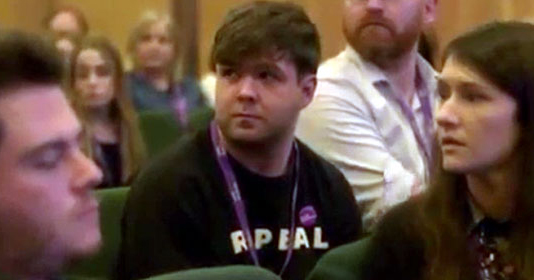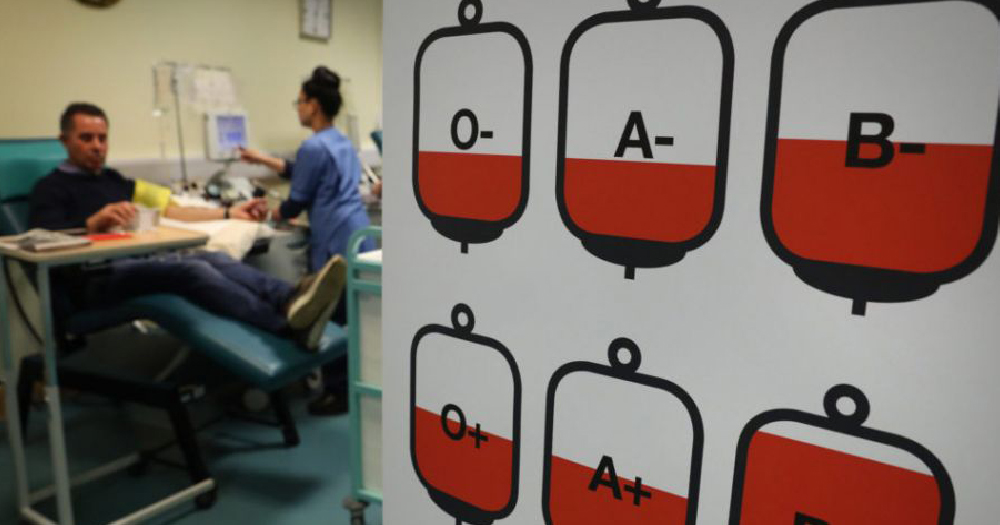27 year-old Tomas Henegan has brought a high court challenge against the Irish Blood Transfusion Service (IBTS) policy which stops him from being able to donate blood unless he abstains from sex for at least one year.
Henegan claims that this rule is unlawful and that he cannot understand the reasoning behind it.
Last April, he attempted to donate blood to the IBTS but after filling out a questionnaire he was told he would be unable to do so since he had indicated he had had sex within the 12-month period.
Prior to attempting to make a donation, Henegan said he underwent a series of routine blood tests, the results of which conclusively stating that he was healthy and not a risk to the national blood supply should he decide to make a donation.
Henegan argues that this method of evaluation has no scientific basis as the questionnaire does not allow them to assess the level of risk presented by an individual based on their sexual behaviour.
According to Henegan, the IBTS website states their reason for this policy is to mitigate against a window period following infection during which HIV and hepatitis are not detectable in the blood.
Henegan says the period for HIV is 7 days and 16 days for hepatitis.
Mr Henegan argues that a far less onerous restriction could be imposed to protect blood recipients.
He claims the policy is disproportionate, discriminates against gay, bisexual and MSM men and breaches his constitutional rights as well as rights under the European Convention on Human Rights.
In his action, Henegan seeks an order quashing the IBTS 12 month abstinence policy, a declaration that the process followed by IBTS was unlawful (in his case) and further damages.
Mr Justice Seamus Noonan granted Mr Henegan permission to bring the challenge and adjourned the matter until July.

Ireland’s Gay Blood Ban
Henegan previously withdrew previous legal action against the IBTS following reduction of the lifetime ban to 12 months.
One of the reasons for the implementation of the ban on gay blood donations was the HIV epidemic of the 1980s, which had a pronounced effect on men who had sex with men.
Now, however, HIV testing is becoming more common.
In April 2016, GLEN in partnership with Sexual Health Centre, Cork and GOSHH in Limerick, launched the KnowNow project.
A pilot initiative as part of Ireland’s first Sexual Health Strategy, its aim is to increase HIV testing by making rapid testing available to men who have sex with men (MSM) in community settings. Pantibar, The George, Outhouse and Boilerhouse are the venues for testing in Dublin, which takes place at various times throughout the week and weekend.
The Gay Project in Cork has free rapid HIV testing on the third Thursday of every month. The other settings in Cork are Chambers Bar and the Loft.
The finger prick test is performed by trained volunteers, it takes 60 seconds to develop a result and is just as accurate as lab-based testing.
To find out more, visit KnowNow on Facebook.
© 2019 GCN (Gay Community News). All rights reserved.
Support GCN
GCN is a free, vital resource for Ireland’s LGBTQ+ community since 1988.
GCN is a trading name of National LGBT Federation CLG, a registered charity - Charity Number: 20034580.
GCN relies on the generous support of the community and allies to sustain the crucial work that we do. Producing GCN is costly, and, in an industry which has been hugely impacted by rising costs, we need your support to help sustain and grow this vital resource.
Supporting GCN for as little as €1.99 per month will help us continue our work as Ireland’s free, independent LGBTQ+ media.
